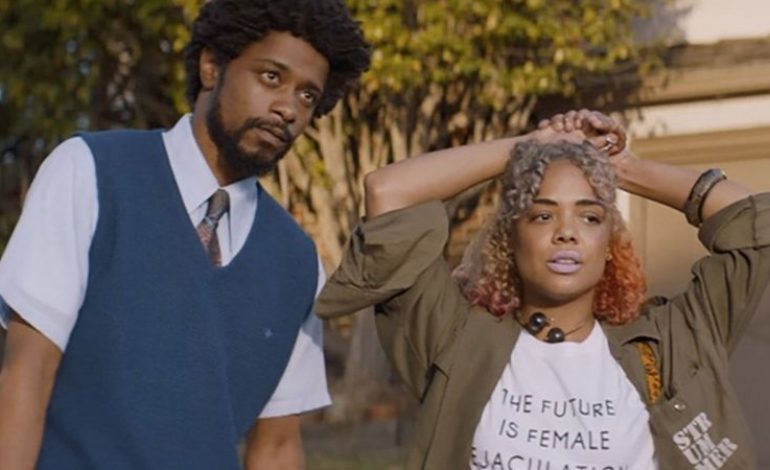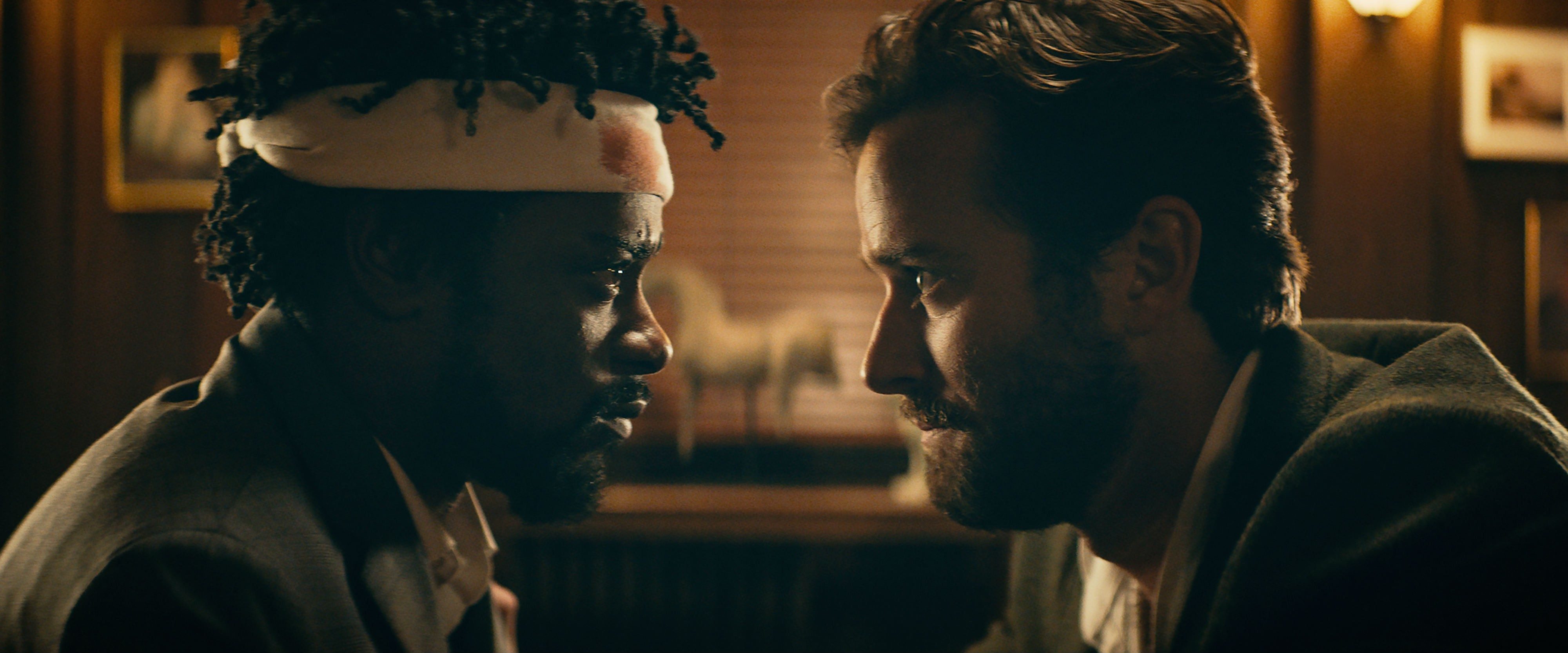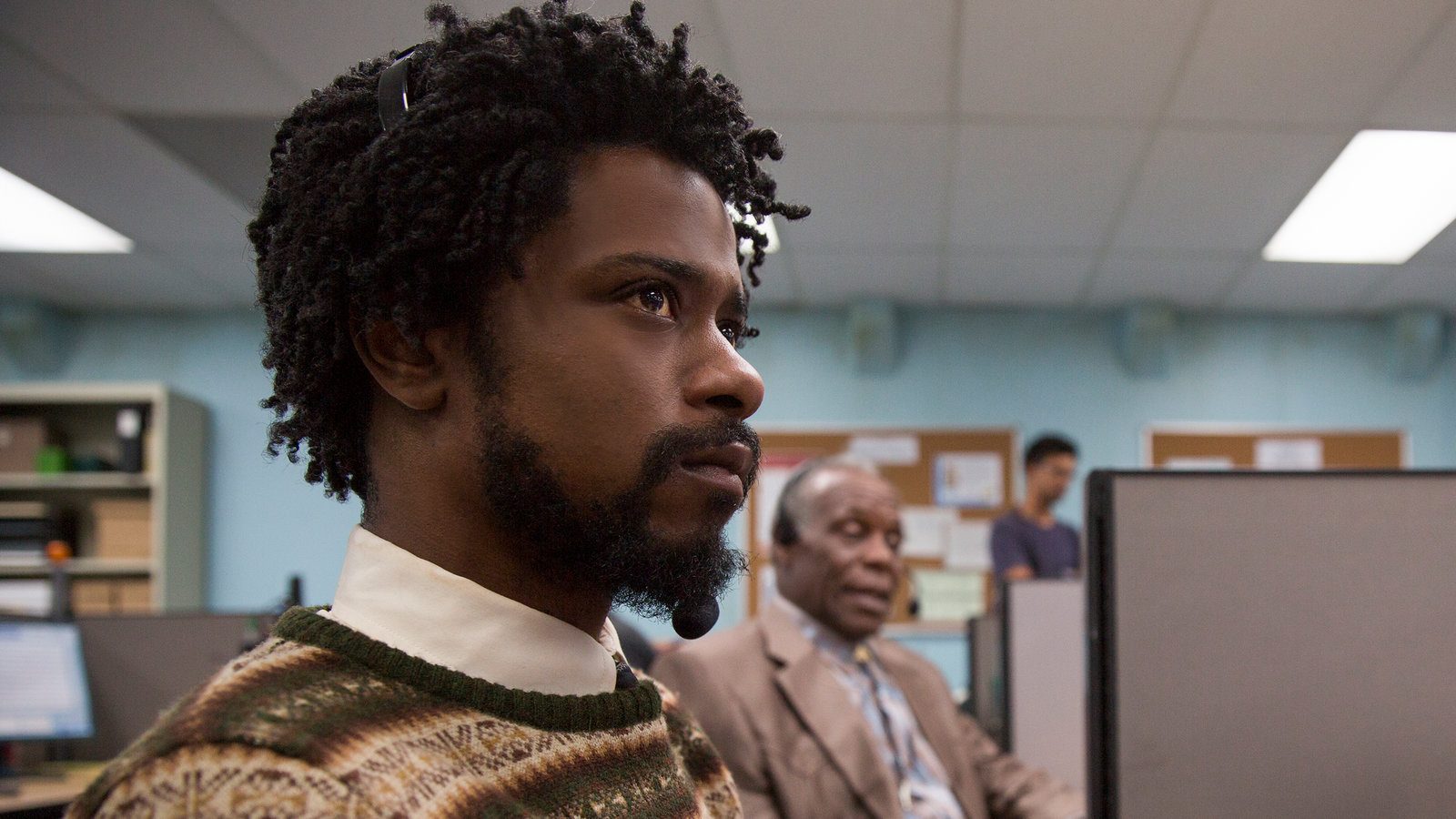

Sorry to Bother You, the 2018 black comedy by musician turned writer-director Boots Riley, confronts race, class and corporate greed through magical realism and science fiction. The film opens with Cassius Green (played by Lakieth Stanfield), interviewing at RegalView for a telemarketer position. The interview goes well, despite being caught in several lies, Cassius is rewarded with a job. Each phone call, quite literally sends Cassius into the home of the potential customer and as instructed he follows the script, struggling to close a sale before he’s hung up on. The stakes are high; the rent is rising at his Uncle’s (played by Terry Crews) and they may both be forced to join “Worry Free”, essentially being sold into corporate slavery. Made with a ‘low’ budget for Hollywood standards (3.5 million), Sorry to Bother You, was a commercial and critical success when initially released. Even while exploring heavier themes like race, labor, and capital Riley manages to balance the weightiness with a sharp sense of comedic timing. The result is a highly entertaining and surprising critique of some of the most pressing social issues of our time.


On his first day, Cassius notices an ornate black and gold elevator door with two senior agents in front, he turns and descends the stairs to his basement level job. Already, Riley creates a visual separation between the working class or the entry level telemarketers and this other class of Super Callers. After striking out several times with the script, we meet Langston (played by Danny Glover), as he chimes in from the cubicle over and advises Cassius to use his “White voice” to better persuade the customers to trust him. In these moments, Riley dubs the voice of Glover or Stanfield with a white actor’s voice, creating a surprising audio effect that’s both comedic and political. Many African Americans or Black people understand what it means to “code switch” in the workplace or predominantly white spaces. When Cassius uses his “White voice” he quickly ascends to Power Caller rank, which seems unbelievable but again furthers the commentary; Black people are rewarded for assuming “White voice” and punished for not.


The film doesn’t shy away from making references to modern day events, in fact one of the most successful aspects of the satire revolves around the similarities of the fictional “Worry Free” company to hugely successful coliving spaces in metropolitan cities around the US.
The popularity of these coliving spaces are often sold to lower-income individuals with few to no better options similar to the commercials for “WorryFree”. While at work, Squeeze (played by Steven Yeun) approaches Cassius and invites him to unionize with the rest of the disgruntled RegalView workers. One of the most successful emotional aspects of the film happens here; Cassius must choose between making more money and helping his Uncle or standing with the other workers during a strike on their cheap employer. Cassius falls into the trap and allure of making more money but as we know what always follows is more problems.
The strike of RegalView is a short lived success, when an upper level agent (played by Omari Hardwick) offers Cassius the prestigious Power Caller position in order to break the strike. After Cassius accepts, his relationship with artist Detroit (played by Tessa Thompson) crumbles and his connection to his Uncle becomes sparse as we see him move into a new apartment. Cassius Green and his story of betraying friends and family for money and greed are not unique but when set against the rapidly gentrifying neighborhood of Oakland, Riley updates the narrative turning it into a critique on the impact of tech giants on communities of color. When the upper level agent introduces Cassius to Steve Lift (played by Armie Hammer), the young tech genius running Worry Free, the film takes a dark turn. Many people have critiqued this aspect of the film, but I find the climax appropriate to the absurdity present in the rest of the film.


VERDICT: 5 out of 5 stars.
In a movie as surprising as Sorry to Bother You, there could be an endless discussion of the many layers and components Riley packed into the 112 minutes. Worry Free, the biggest client for Regal View, “sells slave labor over the phone to the highest bidder”. Both these companies are fictional but their set-up sound eerily familiar and that is the most entertaining aspect of Sorry to Bother You. The magical realism and science fiction play off one another in a way that lends itself beautifully to comedy. Today it seems now more than ever, there’s no shortage of injustices to be aware of, storytellers and creators like Boots Riley, allow us to reflect on these issues all while laughing and smiling. Sorry to Bother You isn’t a perfect film but then again it’s not trying to be. Sorry to Bother You doesn’t stick to the script but rather challenges the Hollywood-mainstream visual storytelling we’ve grown accustomed to, which is worth the bother any day.
